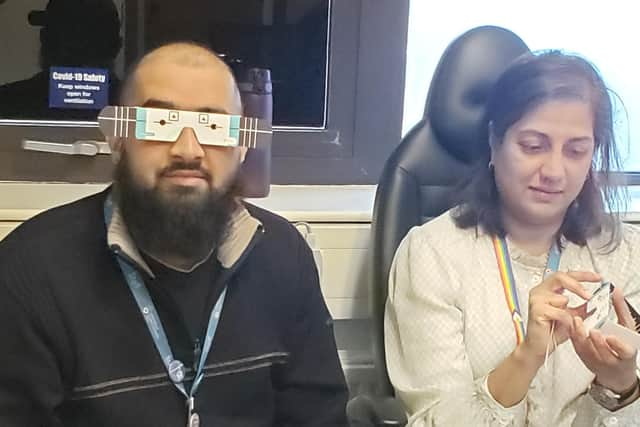Glasgow sight testing pioneer IbisVision on a mission to bring high-tech eyecare to the masses
IbisVision, the pioneering Glasgow firm behind remote eye testing, has agreed a university tie-up that should help less developed parts of the world gain access to high-quality eyecare.
The collaborative research programme will help the company fine tune its processes for remote refractive eye tests. The initiative will see some 30 students at the University of Central Lancashire, across a broad range of ages and backgrounds who are currently studying to become optometrists or dispensing opticians, undertake the roles of clinicians and patients in the research, under the direct supervision of a registered optometrist.
Advertisement
Hide AdAdvertisement
Hide AdThe project, led by academic lead of vision sciences Rupal Lovell-Patell and optometry lecturer Sahal Patel, will offer students a deeper understanding of the mechanics of refraction in the eyecare process, the study of which has retreated in recent years as technology has become more automated in this area. In return, the company hopes to smooth and augment its refractive eye test processes so as to make the remote procedure seamless and more accurate for users.


IbisVision patients use a simple internet connection and computer screen for eye tests, which is significantly limiting in comparison to the normal in-person eye test clinics where space is readily available to test vision over greater focal lengths. The research programme is experimenting with different targets - such as crosses, dots and icons - as well as the use of different visual backgrounds on the screen.
The firm’s ultimate aim is to develop affordable, reliable remote eye test technology so as to allow those in poorer and less developed parts of the world to access the eyecare that those in more developed countries take for granted. The tech can also be used for lower cost triage tests, which could help reduce the burden on the NHS.
IbisVision chief executive Mark Roger said: “We are building technology to tackle the extremely serious scourge of eye disease that occurs simply due to lack of resources or access. As a result, we need to engage with the ophthalmic community and in particular educational institutions to ensure our online tests can match the efficacy of those that take place in person.”
Comments
Want to join the conversation? Please or to comment on this article.